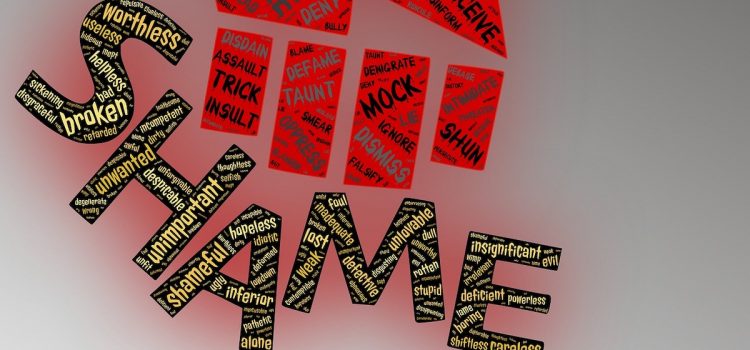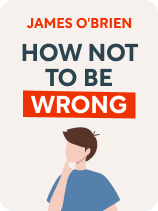

This article is an excerpt from the Shortform book guide to "How Not To Be Wrong" by James O'Brien. Shortform has the world's best summaries and analyses of books you should be reading.
Like this article? Sign up for a free trial here.
Why do some people engage in weight-shaming? How can they turn that around and show kindness instead?
Radio presenter James O’Brien used to bully overweight people. He came to understand that he was using some of the same tactics that others use to dehumanize various kinds of people, and he eventually learned to change his mind—and his ways.
Keep reading to learn how O’Brien turned things around—and how you can, as well.
“Weight-Shaming” and Prejudice Against Overweight People
O’Brien used to engage in weight-shaming on his radio show, even though he himself was overweight. At one point he was actually proud that a slur he had coined on the radio was gaining traction in the world (a caller told him that her daughter had used it against an overweight person in the supermarket). He compares his prejudice against fat people to the prejudice some Brits have against immigrants: He lumped them all together to dehumanize them.
(Shortform note: There is no consensus on the most respectful terms to use to describe overweight people. In the US in particular, the “fat acceptance movement” advocates an end to the discrimination that fat people face. This movement deliberately uses the word “fat” to describe larger bodies, as a way of reclaiming and destigmatizing the word. In medical settings, particularly in the UK, studies show that patients with a body mass index above 25 prefer the terms “weight” and “overweight.” Of course, there is often no need to describe a person’s body size in the first place. If it’s necessary to do so, a safe bet is to use the language preferred by the individual.)
O’Brien analyzes his own “othering” of fat people to demonstrate how he uses the same tactics as anyone who tries to dehumanize a group of people:
- He focused on criticizing a government program designed to reward overweight people financially if they lost weight. In this way, he gave people a reason to get angry that resources that belonged to them—in this case, taxpayer money—were being “unfairly” redistributed to other people. He tried to provoke strong feelings under the guise of sharing facts.
- He used terms that compared human beings to inanimate objects. For example, he compared 15 pounds of weight loss to a bag of sugar. This made it easier for listeners not to have to think of fat people as real humans with feelings.
- He argued that the money being spent to encourage people to lose weight could have been spent to provide terminally ill people with medication. This allowed people to think that they weren’t attacking fat people; rather, they were protecting terminally ill people. (The truth, says O’Brien, is that money spent to treat obesity would actually save money for the National Health Service and the taxpayer in the long run.)
- He emphasized the seriousness of the threat posed by obese people taking taxpayer money.
How O’Brien Changed His Mind
O’Brien’s prejudice against fat people began to change when his family hired a wonderful person to help with childcare. She had long struggled with her weight (and she listened to his show). Knowing that she was a listener, every time he was about to launch into a diatribe about fat people, he thought of her.
He also realized that his criticism of others was more about his own inability to lose weight. It was another example of his “survival personality” refusing to admit that he was vulnerable and needed help, and that simply eating less and exercising more wasn’t enough.
O’Brien compares the way he weight-shamed people to the way online trolls shamed the McCann family whose daughter disappeared from a holiday apartment in Portugal in 2007. Most of the hatred directed at the McCanns was for leaving their daughter alone while they had dinner nearby. O’Brien learned from this that blaming the McCanns was a way for people to convince themselves that it’s possible to control whether terrible tragedies happen to you. If the McCanns were to blame for leaving their daughter alone, the reasoning went, then people who didn’t leave their children alone would never experience a similar tragedy. Hurting others was a way for the trolls to reassure themselves that they and their children were safe.
While trolls shaming grieving parents may be an extreme example, O’Brien believes that everyone shares that mindset to some degree: Everyone sometimes lashes out at others for pain they are feeling themselves.
(Shortform note: Researcher, speaker, and author Brené Brown confirms that it’s human nature to blame others because it gives us some semblance of control. According to Brown’s data, blame is actually the discharging of discomfort and pain. Blaming others, however, generally does not lead to changes in their behavior. On the contrary, it tends to make the recipient more defensive.)

———End of Preview———
Like what you just read? Read the rest of the world's best book summary and analysis of James O'Brien's "How Not To Be Wrong" at Shortform.
Here's what you'll find in our full How Not To Be Wrong summary:
- Why learning to change your mind is a valuable skill
- How to combat prejudice and gain empathy for others
- Why you should take a step back and reexamine your beliefs






